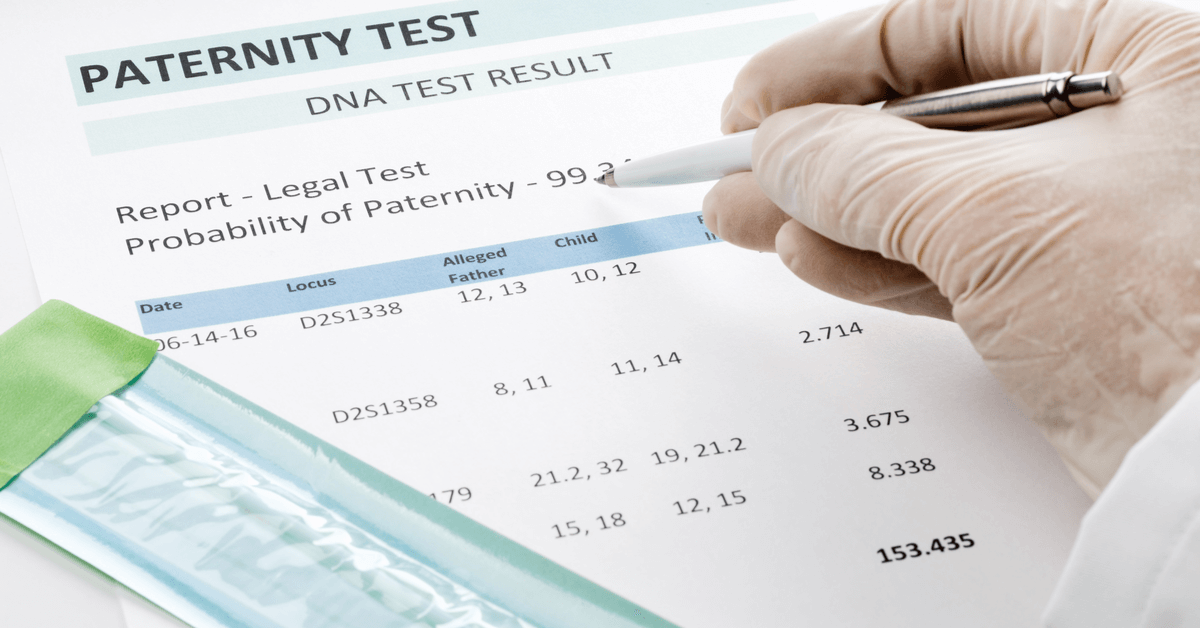It’s normal to have many questions in your mind if you don’t know for sure who the baby’s father is. But you don’t have to wait until birth to find out who your baby’s father is. With the developing technology and medical facilities, you can have a paternity test during pregnancy. Of course, before you decide to have a paternity test, there is a lot you need to know about the process.
If you wish, let’s answer your questions together.
What Is a Paternity Test?
The screening test to prove or disprove the biological relationship between the baby and the father is called the paternity test. It is done when the mother is in doubt as to who the father of the baby is, or when the father wants to make sure that the baby is his own. It can be done after the birth, as well as before the birth, while the baby is in the womb, paternity test can be done.
Child’s DNA with parenting prove or disprove ul taken DNA samples of the desired MEK father, and these examples it is examined whether there is a match by comparing them with each other. In case of a match, the paternity test accuracy rate is almost 100% reliable. This rate assumes certainty and is accepted by official authorities.
What Week Is the Paternity Test During Pregnancy?
Pregnancy becomes apparent about 4-5 weeks after fertilization, that is, the egg cell and sperm cell come together, and you can do the fetal DNA test from the 5th week, shortly after you learn that you are pregnant.
So when is the earliest paternity test done during pregnancy? You can do it between week 5 and week 8. From the 8th week onwards, as the amount of fetal DNA in the mother’s blood and belonging to the baby will increase as time passes, you can obtain much more precise results from this week.
How Is Paternity Test Done During Pregnancy?
As of the 5th week of pregnancy, the genetic structures of the baby, namely fetal DNA, begin to circulate in the mother’s blood. Paternity testing during pregnancy is based on matching the genetic information required for comparison from the fetal DNA in the mother’s blood with that of the father. The testing phase proceeds as follows.
- A blood sample is taken from the mother.
- A blood sample or cheek swab sample is taken from the father.
- In private laboratories, baby DNA is separated from the blood sample taken from the mother and compared with the sample taken from the father.
- It takes about 1 week for the result to appear.
- If the match between the two genetic information is 0%, the male sampled is not the biological father of the child. If the match is 99% or more, it indicates that he is the biological father.
Paternity Test Options During Pregnancy
There are multiple methods that can be used for the paternity test of the baby in the womb. With the developing technology, the most used fetal paternity tests in the world are:
Non-Invasive Prenatal Test (NIPT):
It is one of the most common options for those who want to have a paternity test while pregnant. High-tech instruments for fetal cell analysis are used and the accuracy is over 99%. It can be applied as of 5-8 weeks of pregnancy. A blood sample is taken from the mother-to-be and the alleged father. The fetal DNA in the mother’s blood and that of the baby is compared with the DNA samples obtained from the father’s blood. The ratio resulting from this matching reveal whether the male is the biological father of the baby.
Amniocentesis:
It is a method used to detect prenatal genetic anomaly in the baby rather than paternity test. It can be done in the second trimester, anytime between the 14th and 20th weeks of pregnancy.
It is a genetic screening test performed by a specialist physician by taking a sample of amniotic fluid from the placenta of the mother using a thin and long needle with the help of ultrasound. Fetal DNA of the baby is found in the amniotic fluid taken from the expectant mother. The chain of this DNA is compared with the DNA chain in the blood sample taken from the father, and the match resulting from the matching gives a result about whether there is a biological father. Having a paternity test while pregnant with amniocentesis is 99% accurate. Although amniocentesis is less likely, other options are preferred because it may cause abortion.

Chorionic Villus Sampling (CVS):
From the early stages of pregnancy, about 10-13. Can be applied from week. Doctor approval is required for this procedure to be used for paternity testing. With pregnancy, small finger-like tissues are formed on the uterine wall of the expectant mother and adhered to the surface. These tissues, called chorionic villi, consist of the same fertilized egg and therefore have the same genetic makeup as the baby.
In paternity test with chorionic villus sampling, the specialist doctor inserts a thin needle or tube into the cervix and takes a sample of chorionic villi from the uterine wall with the help of ultrasound. The sample taken from the tissue here is compared with the DNA sample taken from the father, and a conclusion can be reached about the test by looking at the compatibility rate.
Why Is It Important to Have a Paternity Test While Pregnant?
In addition to eliminating conflicts in family relationships, paternity testing may be required in some cases for legal, medical and psychological reasons. You can troubleshoot many problems with fetal DNA scanning if:
- For your own peace of mind, you can have it done when you want to confirm the parenting of a child.
- In custody and alimony cases, it may be required to be legally claimed by the court.
- It may be needed for social security reasons.
- It may be requested to eliminate contradictions in inheritance cases and to claim rights.
- When faced with any health problem, the baby’s medical history may be needed to obtain the necessary health information.
- You can request to support an immigration application or to support any appeal to immigration authorities.
- It is important to strengthen family ties.
- The fact that the baby grows up knowing his real father strengthens the relationship between the father and the child and prevents the baby from being psychologically affected. For this reason, it may be requested.
- When you want the biological father to take responsibility both financially and emotionally during pregnancy, you may want to clarify the result without waiting for the birth.
Would you like to share your experiences and questions as a comment?
Have a nice and healthy day!







